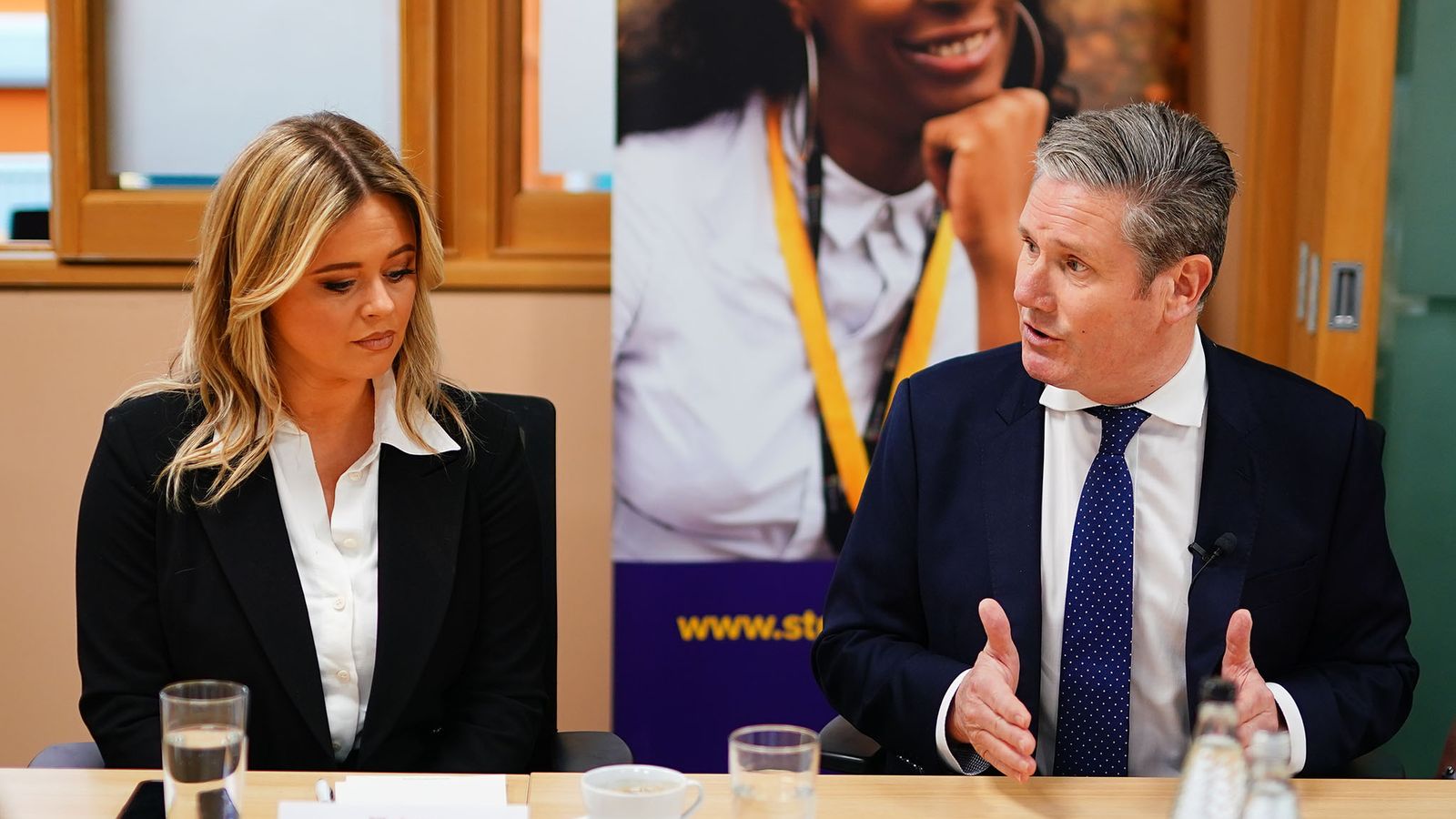Spiking someone’s drink or injecting them with drugs or alcohol will be made a specific offence under Labour, Sir Keir Starmer has announced.
Labour would bring in the measure if it wins power as part of its plan to clamp down on violence against women and girls.
Sir Keir said that in a roundtable with actor Emily Atack and former Love Island star Georgia Harrison, the issue of spiking came up, as well as abuse on social media.
Speaking on ITV’s This Morning, the Labour leader said spiking – when someone’s drink is laced with alcohol or drugs or they are injected without their knowledge or consent – was “often a step towards sexual assault of some sort”.
He said making it a specific offence would “make it easier for people to come forward and easier to prosecute.”
Last year, the Home Affairs Select Committee of MPs recommended that the crime be made an offence in its own right.
However, ministers rejected their call in January, saying it was unnecessary and that the government had not found any “gaps in the law”.
Labour to push Commons vote to end sewage dumping
Sir Keir Starmer ‘utterly condemns’ Diane Abbott’s ‘antisemitic’ comments
Who is Diane Abbott? From trailblazing MP to thorn in Labour’s side
Home Office minister Sarah Dines said at the time that there were already several offences that covered spiking incidents.
But Sir Keir said: “I think they’re wrong about that.”
Symptoms of spiking can include nausea or vomiting, hallucinations and paranoia and unconsciousness.
The crime came to prominence in October 2021, when a campaign was started calling on people to boycott nightclubs in protest at a rise in reports of drink spiking and injections.
Universities said that the increasing number of cases of spiking by injection during nights out was “incredibly disturbing”.
Several women, including students, reported fearing they had been targeted by people injecting them with drugs at nightlife venues, with reports in a number of parts of the UK, including Nottingham, Scotland and Northern Ireland.
Last May, in response to the problem, the government set up a new working group to stamp out the “heinous” issue, with every university in the UK asked to introduce a policy to tackle spiking by the end of the year.
The group will bring together vice-chancellors, police, campaigners and victims to create plans for practical steps to keep students safe following a spate of attacks.







